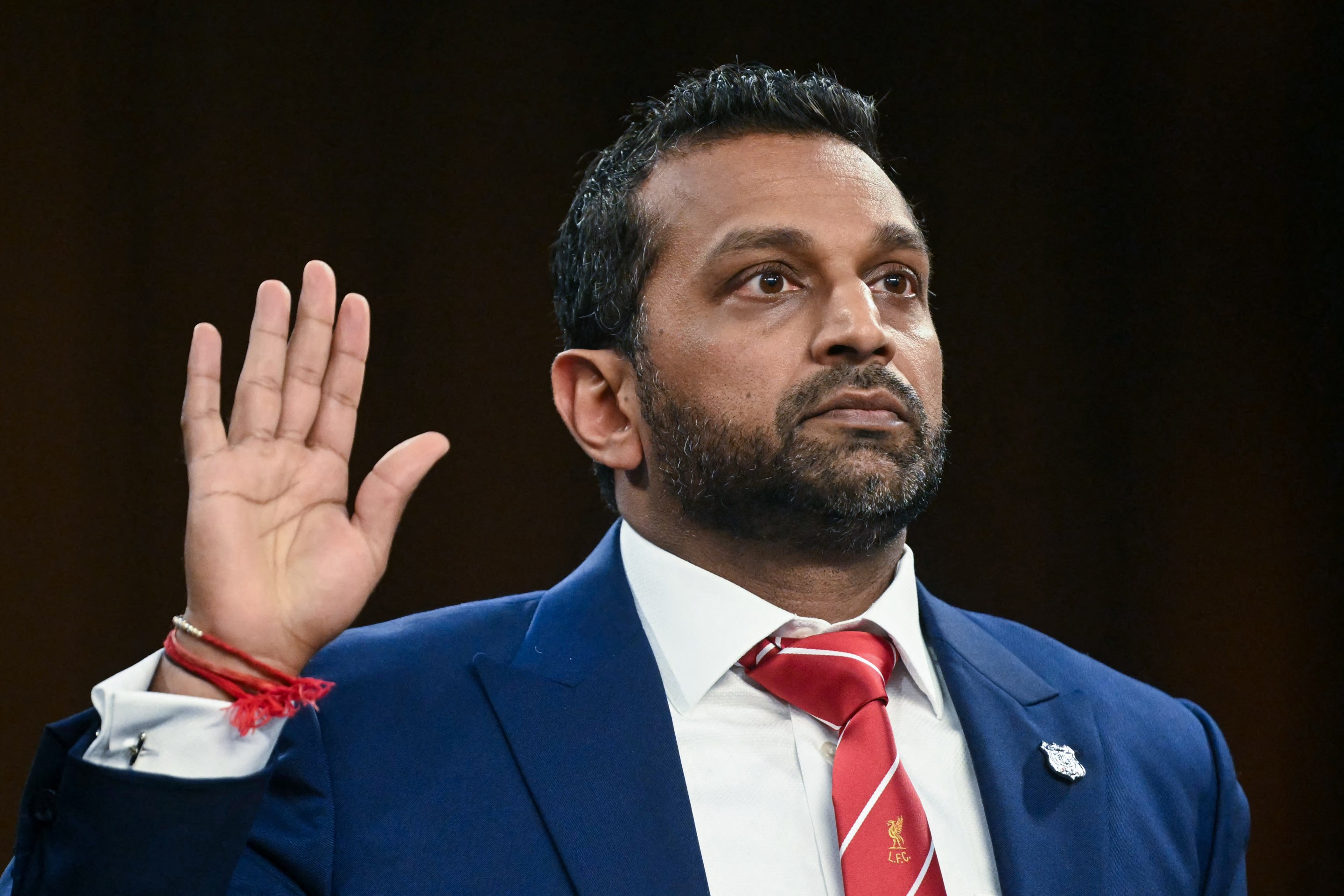Last week, Washington Post national political reporter Felicia Sonmez sued her employer for discriminating against her on the basis of gender. The 47-page filing meticulously details how over the course of three years, numerous newsroom bosses, including the sainted Marty Baron, punished her for speaking out about her sexual assault by repeatedly banning her from covering any stories even tangentially related to the topic. The lawsuit says that Sonmez’s bosses maintained that she had “taken a side” on the issue of sexual assault by making statements about her own assault, and therefore was not able to cover these stories with the requisite journalistic objectivity. According to the lawsuit, on which the Washington Post has so far been dead silent, WaPo bigwigs “accused Sonmez of being an ‘activist’ by speaking out on the issue of her own assault.” One portion of the filing—which names Baron, who retired earlier this year, along with Managing Editor Cameron Barr, Managing Editor Tracy Grant, National Editor Steven Ginsberg, Deputy National Editor Lori Montgomery, and Senior Politics Editor Peter Wallsten—reads:
Defendant Barr stated that, by speaking out publicly, Ms. Sonmez had "taken a side on the issue" of sexual assault. He also told Ms. Sonmez she was "trying to have it both ways" by publicly disclosing her own assault and continuing to report on the topic. Defendant Ginsberg raised his voice and told Ms. Sonmez that it would present "the appearance of a conflict of interest" if she continued to report on Kavanaugh or any other issues related to sexual misconduct. [...] Defendant Barr stated, "We don't have reporters who make statements on issues they are covering. We don't want the external perception that we have an advocate covering something she has experienced. He added, "The work you do intersects with what you experienced in your life." Ms. Sonmez noted that this is no different from any other reporter in the newsroom. Defendant Grant insinuated that Ms. Sonmez was a threat to the Post's ability to win prizes for its coverage of Christine Blasey Ford's accusations and that editors must "protect the story."
Another part of the lawsuit says that the Post did not apply this standard of objectivity in an equitable fashion:
Around the time that Ms. Sonmez was interviewing for her position at the Post, she was told about a male colleague who faced sexual misconduct accusations including sending an unsolicited photo of his underwear-covered crotch to a young woman. Defendant Baron never ordered that the reporter be banned from covering stories related to sexual misconduct or inappropriate behavior by men. Upon information and belief, none of the reporter's editors said his writing on the topic would present a "conflict of interest" or questioned whether he was capable of objective reporting. He was given a prominent position, wrote more than a dozen stories that touched on these issues and continues to do so today.
The lawsuit, which can be accessed here, is worth reading in full, as it details how Post bosses not only took away Sonmez’s assignments and handed them off to other male reporters, but also failed to offer her adequate security and protection when she was facing extreme harassment and credible threats to her safety and suspended her for tweeting a news article about Kobe Bryant after his death, going so far as to release a public statement attacking her “poor judgement." That suspension was lifted a day later after the Post was widely criticized, including by its own staff. The coverage ban on Sonmez, however, wasn't lifted until this spring, and only under heavy internal and external pressure.
Sonmez isn’t the first journalist to fall prey to objectivity, a concept that is considered sacrosanct by newsrooms across the country and clumsily wielded by those who don’t seem to understand or care that it primarily serves to obscure power dynamics and bolster the status quo. For journalists like Sonmez, objectivity is something else, too: a workplace hazard.
Last summer, the Pittsburgh Post-Gazette prevented reporter Alexis Johnson, who is black, from covering the uprisings that followed the police killing of George Floyd, after she posted a tweet that sarcastically compared damage to Pittsburgh from the Black Lives Matter protests with damage to the city from a Kenny Chesney concert. Pittsburgh Post-Gazette management told the paper’s union representatives at the time that Johnson’s tweet showed “bias” and “called into question her objectivity.” A letter from the Newspaper Guild of Pittsburgh, obtained by Pittsburgh City Paper, demanded that Johnson be reinstated. It read, in part: “Preventing a reporter, particularly a black reporter, from covering civil rights issues of national significance because of a benign tweet—a decision made exclusively by white editors, we might add—is clearly punitive.” Management also removed staff photographer Michael Santiago, who is also black, from protest coverage after he expressed support for Johnson. Santiago took a buyout shortly after management’s actions. Johnson, who now works for Vice, filed a racial discrimination lawsuit against the paper last June. According to the lawsuit, another Post-Gazette colleague of Johnson’s, who is white, had also expressed an opinion on the level of damage from the BLM protests, but he was not contemporaneously barred from covering the protests. Johnson’s lawsuit is ongoing, pending a decision from a judge on the Post-Gazette’s motion to dismiss both her lawsuit and an investigation by the city’s civil rights commission, on the grounds that challenging the paper’s editorial judgement violates its First Amendment rights.
In May, the Associated Press fired entry-level reporter Emily Wilder for her college activism in support of Palestinian liberation and for being critical of the Israeli government. After right-wing mobs surfaced her old posts, the Associated Press claimed that Wilder’s “social media posts showed a clear bias toward one side and against another in one of the most divisive and difficult stories we cover.” The Associated Press never identified which of Wilder’s posts showed bias. It never specified what kind of college activism would disqualify would-be reporters from working at the AP. It also never explained why Wilder’s beliefs made her unfit for a job as an entry-level reporter covering news in Arizona. Meanwhile, the beliefs and actions of former AP reporter Matti Friedman, who was a literal Israeli Defense Force soldier, didn’t disqualify him from reporting on Israel-Palestine from the AP's Jerusalem bureau.
And just last week, NPR reported that three Latina reporters were ousted from a Denver TV news station in a year; one, Sonia Gutierrez was told she couldn’t cover immigration unless she stated her immigation status in every report:
Gutierrez says she received no response when she asked for concrete examples of how her status had compromised her reporting. And when she refused to go along, Gutierrez says, she was told she would have to pass her story ideas and sources on immigration to other reporters.
"It's not like there was something wrong with me or my reporting," says Gutierrez, who left last year. "There was just something wrong with who I was — a liability to them."
Discussions about journalistic objectivity tend to bleed into high-minded generalizations pretty quickly. A question like, Should a woman be allowed to speak publicly about her sexual assault without being diminished and humiliated at work? can be, and often is abstracted into arguments that bump up against unhelpful referendums on the nature of truth itself. By avoiding the real-life consequences of objectivity, it’s easier for the powers that be to wax on about the need for reporters to operate with a stoic, lobotomized dispassion.
The questions guiding these sorts of discussions usually go something like this: Is it good for reporters to pretend that they have no thoughts and opinions about the topics they cover? Or is it dishonest for journalists not to be transparent about these thoughts and opinions? Is it beneficial for reporters to draw on their life experiences to add depth to their work? Or is it disqualifying? If it is beneficial, what needs to be disclosed to readers? If it is disqualifying, what needs to be disclosed to readers? It is, of course, bad for reporters to pretend to be mooncalves; New York Times political reporter Peter Baker bragging about his empty head and ability to “never make up his mind” about a candidate or “side” doesn’t serve anyone, least of all his readers. Being transparent about the fact that having no politics is itself a political stance, however, might. The questions then become: Who is able to separate their experiences, thoughts, and opinions from their reporting? Who is perceived as being capable of separating their experiences, thoughts, and opinions from their reporting? Who decides who is perceived as being capable of separating their experiences, thoughts, and opinions from their reporting? Who gets silenced as a result? In whose service does all of this actually work?
These questions are worth asking, of course, but generally, the responses provided by newsroom decision-makers end up being tedious and useless. That is, when the sentinels who dutifully lord over the realm of Serious Journalism stoop to address the topic of objectivity—which mostly only happens when their pesky lessers force the issue—their answers are largely defensive, dismissive, or straight-up bewildering. When you reframe journalistic objectivity not just as something that shapes coverage, but as a labor issue, one that disproportionately affects people of color and women, all of those high-minded, abstract questions start to matter a lot less.
Normative questions about journalistic objectivity can’t be separated from how it works in practice. Saying that reporters should endeavor to not let personal biases affect their coverage of a given topic is harmless enough, but the way this is policed in newsrooms—as evidenced by what Sonmez, Wilder, Guiterrez, Johnson, and Santiago have experienced—is an excuse for discrimination. The question that really matters is this: Is the journalistic norm of objectivity not working at all or as intended?






